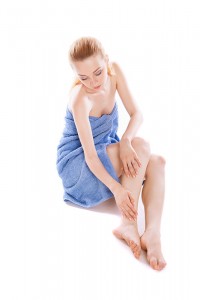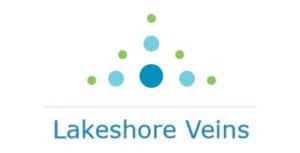Varicose Veins at 20?
 At our Vein Clinic, Lakeshore Veins, we have seen patients in their teens and early 20s with varicose and spider veins. Many patients feel they are much too young to have this problem and also worry that it is a sign of a far worse disease. The truth is, varicose and spider veins are often genetic. You can look to your mother, father, grandmother and grandfather and often find a link.
At our Vein Clinic, Lakeshore Veins, we have seen patients in their teens and early 20s with varicose and spider veins. Many patients feel they are much too young to have this problem and also worry that it is a sign of a far worse disease. The truth is, varicose and spider veins are often genetic. You can look to your mother, father, grandmother and grandfather and often find a link.
With varicose veins there is often a genetic problem with the valves which allows the blood to flow backwards towards the feet. Backwards flow of venous blood causes an increase in pressure in the veins which then begin to dilate and form new pathways. Only in rare circumstances do varicose veins form in a 20 year old with underlying deep venous clot which is a problem that needs to be treated with blood thinners. Usually deep venous clot forms acutely and has symptoms such as severe leg pain and swelling. Varicose and spider veins develop over time and while they may ache or itch are unlikely to have the severe pain or swelling that someone with deep venous thrombosis will experience.
The next question is: What can I do about my varicose and spider veins? To alleviate symptoms and prevent the varicose and spider veins from getting worse we recommend several lifestyle changes.
1. Walk regularly and avoid long periods of standing. If you need to stand, think about flexing your calf muscles to prevent blood pooling in your legs. This can be as simple as going up and down on your toes fairly regularly.
2. Maintain and ideal body weight. Extra weight adds extra pressure on your veins.
3. Elevate your legs. Get use to periodically elevating your legs above heart level several times a day. Gravity works!
4. Wear compression stockings. Most of my young patients are initially hesitant to try compression stockings. They have the image of grandma stockings. Graduated compression stockings now come in many styles ranging from athletic wear to sheer stockings which look good with dresses. Get properly fitted and look around for brands and styles which fit your lifestyle and you will wear. At Lakeshore Veins, we carry Sigvaris brand and our patients are very happy with the choices.
5. Eat a healthy diet – Excess salt can lead to fluid retention and swelling.
Can Varicose and Spider vein treatments be performed on someone in their teens and 20s? Yes, if necessary. If the veins cause significant pain, swelling, itching, restless legs, skin discoloration and you have tried the conservative methods listed above, you are a candidate for the minimally invasive varicose vein procedures including laser vein ablation, radiofrequency ablation (Venefit), sclerotherapy and possibly microphlebectomy. We generally do not recommend “vein stripping” as it is much more invasive and can cause scarring. Vein ablation, sclerotherapy and microphlebectomy can be done in a clinic setting and you will have little down time post procedure.
If I treat my varicose veins, will I likely need follow up procedures in my 30s, 40s and 50s? Maybe, but not necessarily. Sometimes we treat the one abnormal vein and patients never have a problem again. In a small percentage of people, new vein form especially after pregnancy or weight gain. Repeat treatments can be performed if necessary.
If you have further questions, do not hesitate to call our Mequon Vein Clinic (262) 241-3999. Our Vein Specialist, Dr. Anne Bartel, would be happy to discuss your options. We do not rush in to treatments. We make sure you are educated on your vein care options,



